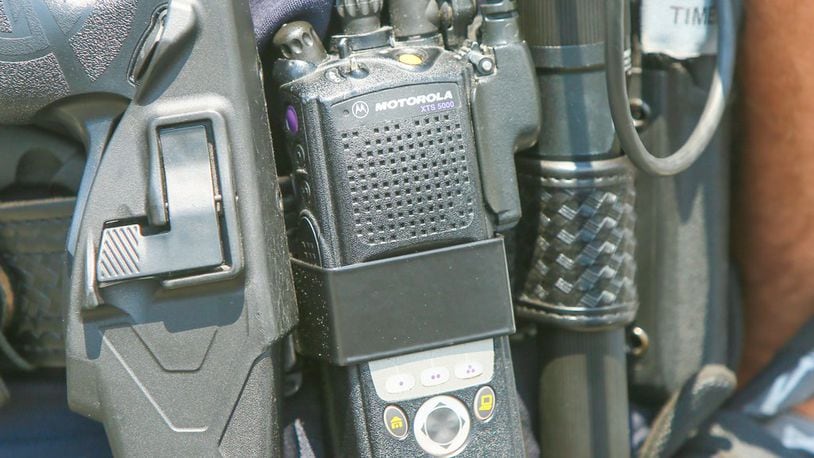The departments sought the $2 million grant to buy about 530 emergency responder radios. Their contribution would have been a 10% match.
Butler County officials found out three years ago they were facing a $19.2 million bill to replace the obsolete public safety communications system and about 3,000 radios that sheriff’s deputies, police, firefighters and others all carry. Motorola stopped making the old radios and said it wouldn’t service them beyond 2018.
Most local cities, townships and other jurisdictions balked at their $12.5 million radio bill — the county’s share was estimated at $3.5 million — and began looking for cheaper alternatives. The remainder of the cost covered infrastructure of the system.
The county negotiated a $10 million agreement for its needs and a half-price deal with Motorola for other jurisdictions. When county officials learned a 2021 software upgrade could produce “critical failures” in the old radios, several jurisdictions agreed to the bulk upgrade and purchased the new equipment. They included Fairfield, Fairfield Twp., Middletown (police radios only), Miami University, New Miami and West Chester Twp.
Oxford Fire Chief John Detherage, who is president of the chiefs association, told the Journal-News he hasn’t discussed the rejection with other chiefs yet, but they need to decide whether to try again next year.
Tami Phillips, a grants management specialist with FEMA said the $315 million in Assistance to Firefighters Grant funding, approved last year, was not impacted by the pandemic.
Detherage said it is possible jurisdictions might have better luck going on their own, given the current federal funding climate.
“I guess there is a chance that that could happen, I don’t know we’ll see” Detherage said.
Hamilton Fire Chief Mark Mercer said he was surprised they were rejected because FEMA favors collaborative efforts. He will order the half-priced radios they reserved with Motorola.
He said it will cost the city around $270,000 for 50 portable and 19 mobile radios.
“There’s just not a good timeline for us to turn around and say, ‘Maybe we can wait another year,’” Mercer said.
Butler County has received about $42.8 million in coronavirus relief funding through the CARES Act to reimburse expenses incurred battling the pandemic. Mercer said he doesn’t believe the radios would qualify for those funds.
“I guess I could make an argument that we use them every time we respond to patients that have COVID but that’s kind of a stretch,” Mercer said.
Middletown Fire Chief Paul Lolli agreed CARES Act money wouldn’t be appropriate for the radios, but he hopes some other funding source could come through because he doesn’t have money for the radios next year. He locked in the Motorola deal last year and says it would cost about $375,000.
“We’re going to have to decide how we’re going to make that happen," Lolli said. "Hopefully we’ll have some time and the radios will continue to work.”
Liberty Twp. also locked in the Motorola price last fall, and Klussman said he will be working on a recommendation for his trustees now that the grant money is gone.
Trenton city council last year approved more than $240,000 to buy 65 radios and accessories for the police, fire and public works departments. The city got the radios for $3,768 instead of $7,511 by ordering before the half price deal went away Dec. 31.
Other chiefs in the county say they don’t have money for wholesale radio replacement, but not all believe their current equipment is going to be worthless next year. Ross Twp. Fire Chief Steve Miller said he has talked to some radio specialists, and while the old radios might not have all the functions of the new models, they “feel pretty confident" the radios will still work.
“That’s the $100,000 question because they don’t know,” Miller said.
Detherage said their radios are working, so he is no hurry to buy the 40 to 50 radios he would need.
“I’ve heard this the world’s coming to an end story so many times,” he said. “I guess I haven’t drank the Kool-Aid yet.”
About the Author
